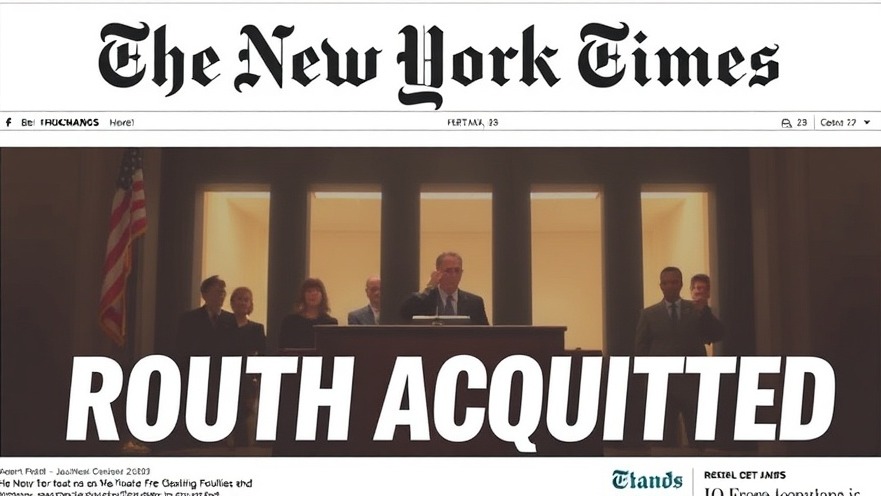
Journalistic Oversight: A Lesson in Pre-Publishing
In a surprising and unprecedented turn of events, The New York Times accidentally published an erroneous verdict ahead of the actual trial outcomes of would-be Trump assassin, Ryan Routh. The importance of accuracy in journalism cannot be understated and this incident underscores the precarious balance newsrooms must strike when engaging in the practice of pre-writing articles for major events. Such pre-publishing practices are common, yet they require diligence to ensure the information disseminated is correct.
Trust Erosion and Media Credibility
The pivotal role of trust between news outlets and their audience is critical, especially when reporting on sensitive topics like assassination attempts against political figures. This incident led many to question the integrity of The New York Times, with social media users expressing their disbelief that a not-guilty verdict was even entertained as a possibility. This situation illustrates how a single oversight can endanger long-established reputations and jeopardize the foundational trust readers place in news media.
Potential Implications for Future Reporting
As discussions around journalistic integrity evolve, this incident prompts reflections on the broader implications for future reporting. What measures can media outlets take to prevent such errors? Should there be a reevaluation of the procedures surrounding pre-published articles? Furthermore, this mistake serves as a reminder of the significance of fact-checking in an age where headlines can go viral before a story is fully developed. It challenges newsrooms to refine their processes and invest in a more robust verification system to reinforce their journalistic integrity.
The Broader Context: Political Climate and Media Dynamics
In examining the political landscape, it is vital to note the heightened scrutiny media outlets are under amid the polarized environment surrounding figures like Donald Trump. When the stakes are this high, even the slightest misstep can amplify distrust. This incident highlights an essential paradigm shift in media dynamics where the pressure to be first can overshadow the responsibility to be accurate, ultimately pushing readers to consume news cautiously. It exemplifies the evolving relationship between politics and journalism, wherein narratives are often scrutinized with a critical eye.
Final Thoughts: Reassessing Our Trust in News
This episode reinforces the necessity for consumers of news to approach information with a critical mindset, especially when headlines seem sensational. While trust in media organizations can be shaken, it’s crucial for the public to engage with news content similarly—evaluating sources, examining facts, and holding organizations accountable. Ultimately, a well-informed public lies at the heart of democracy, and restoring trust is a shared responsibility.
 Add Element
Add Element  Add Row
Add Row 



Write A Comment